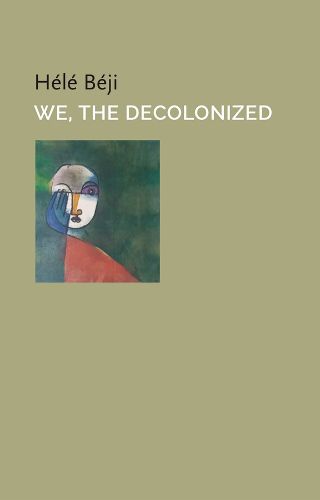Readings Newsletter
Become a Readings Member to make your shopping experience even easier.
Sign in or sign up for free!
You’re not far away from qualifying for FREE standard shipping within Australia
You’ve qualified for FREE standard shipping within Australia
The cart is loading…






We, the Decolonized is a passionate reflection on the pitfalls of the decolonial venture in postcolonial countries, with particular reference to North Africa. Hele Beji shows that in many formerly colonized countries, the reality of independence took the form of elusive freedom, widespread disillusionment and the insidious survival of forms of domination bequeathed by former colonial powers.
Beji delivers an trenchant critique of decolonization: the saddest of all liberties, because it has not kept its promises. Those who had vanquished colonialism, vindicated civilization and struggled free from the yoke of illegitimate government found themselves ensnared in a new trap, having achieved emancipation without liberation. They remained entangled in a compulsive recycling of colonial impulses. To re-embark on the route to a truly free society, intellectuals and political figures must lead by example in acknowledging the reality of the past, adopting tolerant attitudes towards religions and embracing a new and secular democratic mentality.
Beji's important contribution to the decolonial canon will be of great interest to anyone concerned with the politics of decolonization in Africa and the Maghreb and in the Global South more broadly.
$9.00 standard shipping within Australia
FREE standard shipping within Australia for orders over $100.00
Express & International shipping calculated at checkout
We, the Decolonized is a passionate reflection on the pitfalls of the decolonial venture in postcolonial countries, with particular reference to North Africa. Hele Beji shows that in many formerly colonized countries, the reality of independence took the form of elusive freedom, widespread disillusionment and the insidious survival of forms of domination bequeathed by former colonial powers.
Beji delivers an trenchant critique of decolonization: the saddest of all liberties, because it has not kept its promises. Those who had vanquished colonialism, vindicated civilization and struggled free from the yoke of illegitimate government found themselves ensnared in a new trap, having achieved emancipation without liberation. They remained entangled in a compulsive recycling of colonial impulses. To re-embark on the route to a truly free society, intellectuals and political figures must lead by example in acknowledging the reality of the past, adopting tolerant attitudes towards religions and embracing a new and secular democratic mentality.
Beji's important contribution to the decolonial canon will be of great interest to anyone concerned with the politics of decolonization in Africa and the Maghreb and in the Global South more broadly.